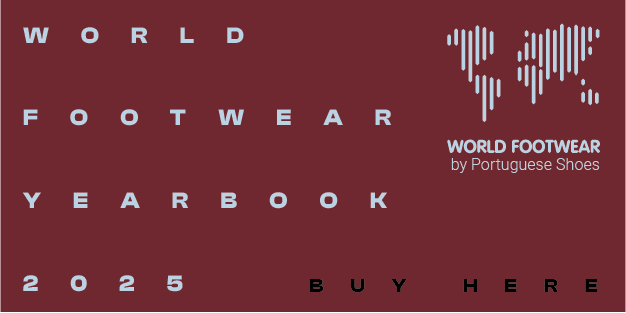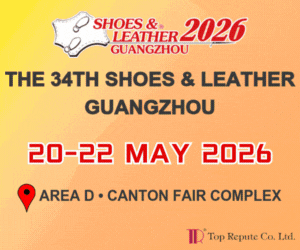M. Rafeeque Ahmed, Chairman of the Council for Leather Exports, live on World Footwear

The Council for Leather Exports, based in India, will host the 19th Congress of the UITIC - International Union of Shoe Industry Technicians, taking place in Chennai from the 3rd to the 5th of February
At the UITIC Congress brands, footwear manufacturers and experts will join to discuss the Future of the Footwear Factory as well as the relevant innovations in the footwear industry. It is the first time that the UITIC Congress will be held in India, the second largest footwear manufacturing country in the world.
This congress will bring together experts and decision makers playing an important role in the worldwide footwear business and manufacturing process. As part of the official program, visits to footwear factories will also be scheduled and participants will be able to visit the IILF 2016 - Indian International Leather Fair.
We have taken the opportunity to speak with Mr. M. Rafeeque Ahmed, the Chairman of the Farida Group of Companies, an India-based exporter of leather footwear, finished leather and shoe uppers. The group was founded in 1957 and graduated up the value chain over the years. The Farida Group provides direct employment to 22 000 workers. About 93% of the employees are women and the group is proud to be supportive of the improvement of the standard of living of the local populations and to be undertaking several CSR projects, such as child care centres for children below the age of 5 and tuition centres for helping the education of children. In addition, Mr. Rafeeque is the Chairman of Council for Leather Exports (sponsored by The Ministry of Commerce and Industry) and the President of the All India Hides & Skin Manufacturers Association.
The theme of the 19th Congress of the UITIC is the Future Footwear Factory. What fundamental topics can we expect to be under discussion in Chennai and how will these matters impact the industry’s future development?
Advances in technology, design and information sciences have enabled the modernization of factories for producing footwear with advanced properties, making optimum use of resources. However there remains the perennial challenge of changing consumer demands and market vagaries. Also, today’s instantly-connected world has ushered in a plethora of opportunities and challenges. Footwear factories have to adapt and improvise to stay ahead in this dynamic scenario. The 19th UITIC Congress aims to bring together technical experts, manufacturers, and stake holders of the Footwear industry, for a period of intense deliberations on the themes. And reflections will be sub-divided in the following topics: Manufacturing based on the needs of the consumers; Intelligent factory and smart supply chain; Sustainability and regulatory trends impacting on factories and Attractive footwear factories and new way of management.
What will be the main advantages of participating in the Technical Footwear Congress in February?
The participants would be able to appreciate the new technologies that can be used for the benefit of all the stakeholders.
In your view, what will be the main challenges for the footwear industry in the next few years?
One of the priorities to be elected by the footwear companies is speedy access to the markets.
India is one of the most important players within the footwear industry. What are the main challenges of the local industry for the next few years? What can we expect from the Indian companies in the international field?
Global demand is increasingly shifting from dress shoes to categories like casual and athleisure. Indian companies are predominantly catering to the dress shoe market. Creating necessary components and infrastructure to meet the shifting demand towards casual and athleisure category is the main challenge for the Indian companies. Global women’s footwear market also offers huge opportunity for Indian companies. In order to explore this market Indian companies have to develop necessary infrastructure.
This congress will bring together experts and decision makers playing an important role in the worldwide footwear business and manufacturing process. As part of the official program, visits to footwear factories will also be scheduled and participants will be able to visit the IILF 2016 - Indian International Leather Fair.
We have taken the opportunity to speak with Mr. M. Rafeeque Ahmed, the Chairman of the Farida Group of Companies, an India-based exporter of leather footwear, finished leather and shoe uppers. The group was founded in 1957 and graduated up the value chain over the years. The Farida Group provides direct employment to 22 000 workers. About 93% of the employees are women and the group is proud to be supportive of the improvement of the standard of living of the local populations and to be undertaking several CSR projects, such as child care centres for children below the age of 5 and tuition centres for helping the education of children. In addition, Mr. Rafeeque is the Chairman of Council for Leather Exports (sponsored by The Ministry of Commerce and Industry) and the President of the All India Hides & Skin Manufacturers Association.
The theme of the 19th Congress of the UITIC is the Future Footwear Factory. What fundamental topics can we expect to be under discussion in Chennai and how will these matters impact the industry’s future development?
Advances in technology, design and information sciences have enabled the modernization of factories for producing footwear with advanced properties, making optimum use of resources. However there remains the perennial challenge of changing consumer demands and market vagaries. Also, today’s instantly-connected world has ushered in a plethora of opportunities and challenges. Footwear factories have to adapt and improvise to stay ahead in this dynamic scenario. The 19th UITIC Congress aims to bring together technical experts, manufacturers, and stake holders of the Footwear industry, for a period of intense deliberations on the themes. And reflections will be sub-divided in the following topics: Manufacturing based on the needs of the consumers; Intelligent factory and smart supply chain; Sustainability and regulatory trends impacting on factories and Attractive footwear factories and new way of management.
What will be the main advantages of participating in the Technical Footwear Congress in February?
The participants would be able to appreciate the new technologies that can be used for the benefit of all the stakeholders.
In your view, what will be the main challenges for the footwear industry in the next few years?
One of the priorities to be elected by the footwear companies is speedy access to the markets.
India is one of the most important players within the footwear industry. What are the main challenges of the local industry for the next few years? What can we expect from the Indian companies in the international field?
Global demand is increasingly shifting from dress shoes to categories like casual and athleisure. Indian companies are predominantly catering to the dress shoe market. Creating necessary components and infrastructure to meet the shifting demand towards casual and athleisure category is the main challenge for the Indian companies. Global women’s footwear market also offers huge opportunity for Indian companies. In order to explore this market Indian companies have to develop necessary infrastructure.












